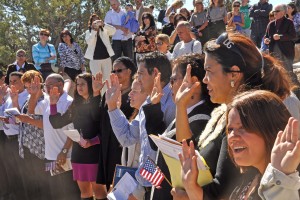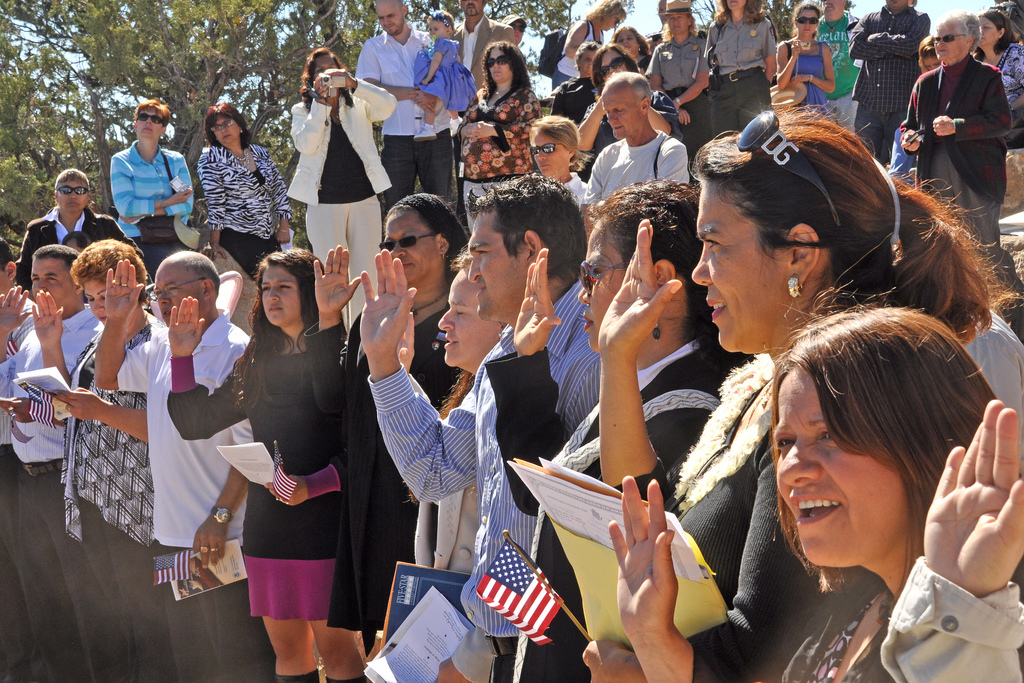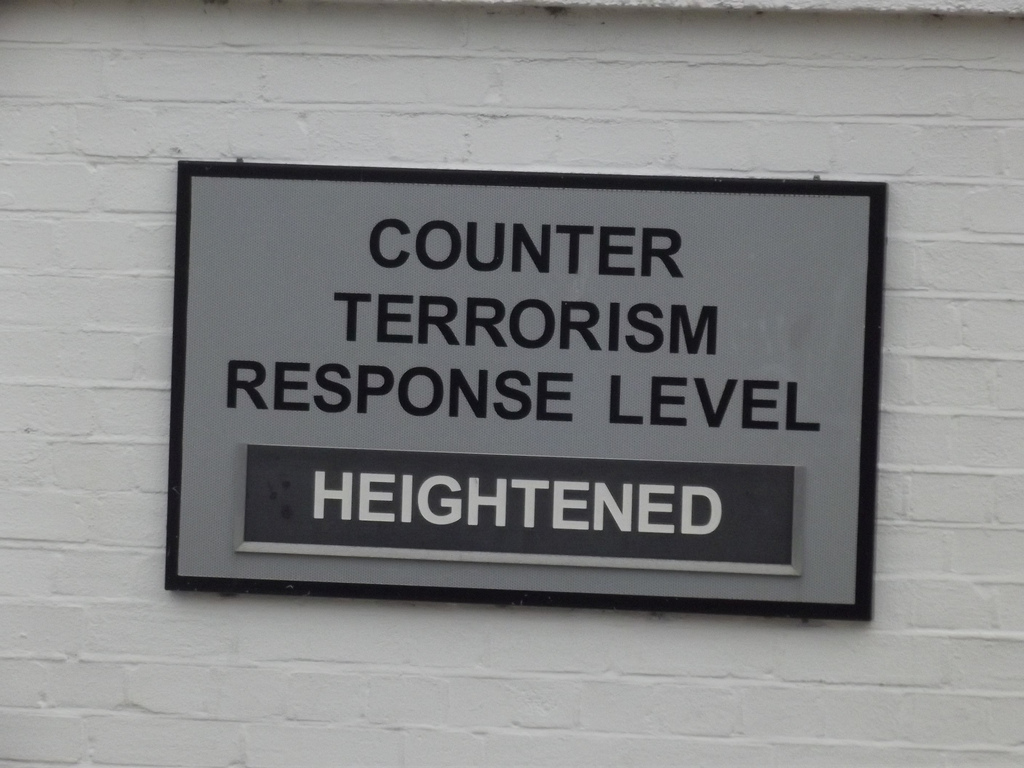“Political labels hinder our ability to fix society’s problems. We should spread ideas that benefit the human condition as a whole.”
As the world has developed from a relatively isolated system, towards one that is more interconnected and globalized, the role of its inhabitants has changed as well. This is the product of the exchange of ideas, goods, language, traditions and mannerisms, better known as the emergence of world trade. As trade has expanded, the national citizens are being transformed into new “global citizens.” Yet, while the common moral values of brotherhood and acceptance amongst people of different backgrounds have strengthened, the process of cooperation remains stagnant.
Trading routes date as far back as before the Common Era. Since the 1600s, the population has increased from around 500 million to now fourteen times that, recently surpassing seven billion. American students are now competing with Asian students in a global labor force. The majority of foods and goods we buy here in the United States are composed of international parts. The modern financial system allows day traders to participate in the international stock market; for anyone with a bank account to make overseas investments. Our ability to communicate with one another is now facilitated to a point that we can speak with someone across the world by the push of a button. Global trade is becoming easier as communication advances.

Together, the forces of man power and technology will continue to increase our interconnectedness as a people. The identities of nation-states will deteriorate, and in turn the influence of the global community will grow stronger. These defining commonalities amongst people will begin to mix into a global culture. The national citizen from the ages prior to the twenty-first century is being transformed into a new form of “global citizen.”
To be globally aware means to have an understanding that every human on this earth is of equal worth. We claim to share a common set of moral values, in which we seek the well-being of those who we know.
People with different backgrounds are able to get along with one another every day. It takes a sense of familiarity- a personal relationship – between two strangers in order to put down the mental barriers and stereotypes that we hold against one another. Such stereotypes are the root of political labels. Once a sense of relativity is established between two people, each of them is willing to help the other, and cooperate to ensure the well-being of both. They treat each other like neighbors.
There is nothing more valuable than a simple conversation between two neighbors. When an issue arises between two people with different interests, the mutually beneficial solution will only come about if each agent is concerned with the other’s well-being; only accomplished if each agent views the other as a neighbor.
It is our responsibility as global citizens to use our intellect and good-nature to help foster positive change. This means being conscious of our common morals, and treating our fellow world citizens as our neighbors.
In order to accomplish this we must undermine special interest groups and their influence on the political system. We must seek to improve the human condition as a whole; in our own country and on an international scale.
The human condition encompasses the totality of the experience of living life, something that is shared between all people. We all need good health, a strong public infrastructure, and access to primary and secondary education to sustain a society. These are concerns that are shared by every societal member, and should not be only accessible to some.
With the American election cycle underway, the major topics of debate between our two parties are: the economy, health care, foreign policy, immigration, same-sex marriage, abortion, social security, the environment, education, terrorism, gun control and the size of government. Political labels aside – all of these issues need to be viewed through the lens of an American citizen in a global context. This is the only way that our integrity as a nation will be maintained, and the integrity our global society can improve. Unfortunately, this poses quite a challenge, as our politicians have become polarized and it is difficult to grasp what it really means to be a Democrat or Republican.
As long as we buy in to the conventional wisdom of politics, our selfish concerns and narrow-focused interests will be harmful to other members of our society. This is an inherent hypocrisy of the purpose of society. Current political labels discourage conversation and cooperation, and instead promote divisiveness and stubbornness. As a result, we need to change how we define ourselves politically.
The terms that more accurately characterize a person’s stance on issues, within a global context, are fiscal conservative, social liberal, fiscal liberal, and social conservative. These refer to perspectives on specific policy issues, which is more accurate than defining perspectives on the ideal role of a government. As time has changed, the validity and cohesion of the Democratic and Republican parties has deteriorated and thus has resulted in two parties with constant in-fighting and grand standing.
The two dominating parties have been divided on the grounds of whether the federal government should, “act as support system for the country or play an extremely limited role in business, social and day-to-day life,” according to CNNPolitics campaign center. Generalizations for each are as follow: Republicans want a smaller government and less social welfare. Democrats want more social welfare and are accepting of larger government involvement. We have grown up to believe it is the Democrats who are the liberals and the Republicans who are the conservatives. However, it is common for people on both sides to have liberal perspectives on one issue, yet maintain a conservative perspective on another issue.
Could this be true of all Democrats and Republicans? Are some people swayed to choose and vote one way or the other solely because of the structure of our system and “stance” of their party?
The majority of voters, young and old are blinded by the labels with which they grew up. There is a fear of change and fear of cooperation. The presidential system has produced a binary result in terms of political support; either all Democrat or all Republican. As a result, these political labels have resulted in judgments that serve to demoralize one another in the voting body and to hinder our ability as a people to fix humanity’s problems. The congressional stalemate that we have been experiencing over President Obama’s first term is example of such hindrance.
What is more, how can the aged foundation of each of these two parties adequately cover the depth and many opinions of various issues- both of which are constantly changing?
The current purpose of our government for the upcoming 2012 term is different than how it may be needed 20 years from now. To label ourselves as red or blue through the longevity of our lives is foolish. It is more practical to deal with issues as they arise. Strong government intervention is present in our economy today because of the recent lack of responsibility of our private sector. In twenty years, the role of the government in the economy may change. Currently, nuclear proliferation, energy sources, unemployment and financial regulation are the most pressing issues that need to be addressed now. The solutions cannot be biased, and instead need be concerned with the entire well-being of us as a People – not only being concerned with the well-being of our fellow Republicans or Democrats.
As the author of this article, I am neither a Democrat nor a Republican. I am an American living in a globalized world. As an American, I believe that there are ideas that make up the foundation for this nation – opportunity, freedom, and the pursuit of happiness – that are worth spreading for all individuals. It is integral for the 2012 election to focus our resources on promoting a stronger standard for the human condition as a whole, within our country, and on an international scale. We are all neighbors; there is no reason to treat one another as anything less.
I am not proposing a radical shift in our government. I am simply advocating for global consciousness among American voters.
As a hegemon in the international system, America has the ability to sway ideologies around the world. Our decisions and actions are thus felt on a global-scale. They impact all persons within our own borders and many outside them as well. It is integral that we seek a more sustainable way of living so that our people as a whole can flourish. To do this, we need to make personal sacrifices and adhere to our moral values to look out for one another, as neighbors, and not just as political party peers.



